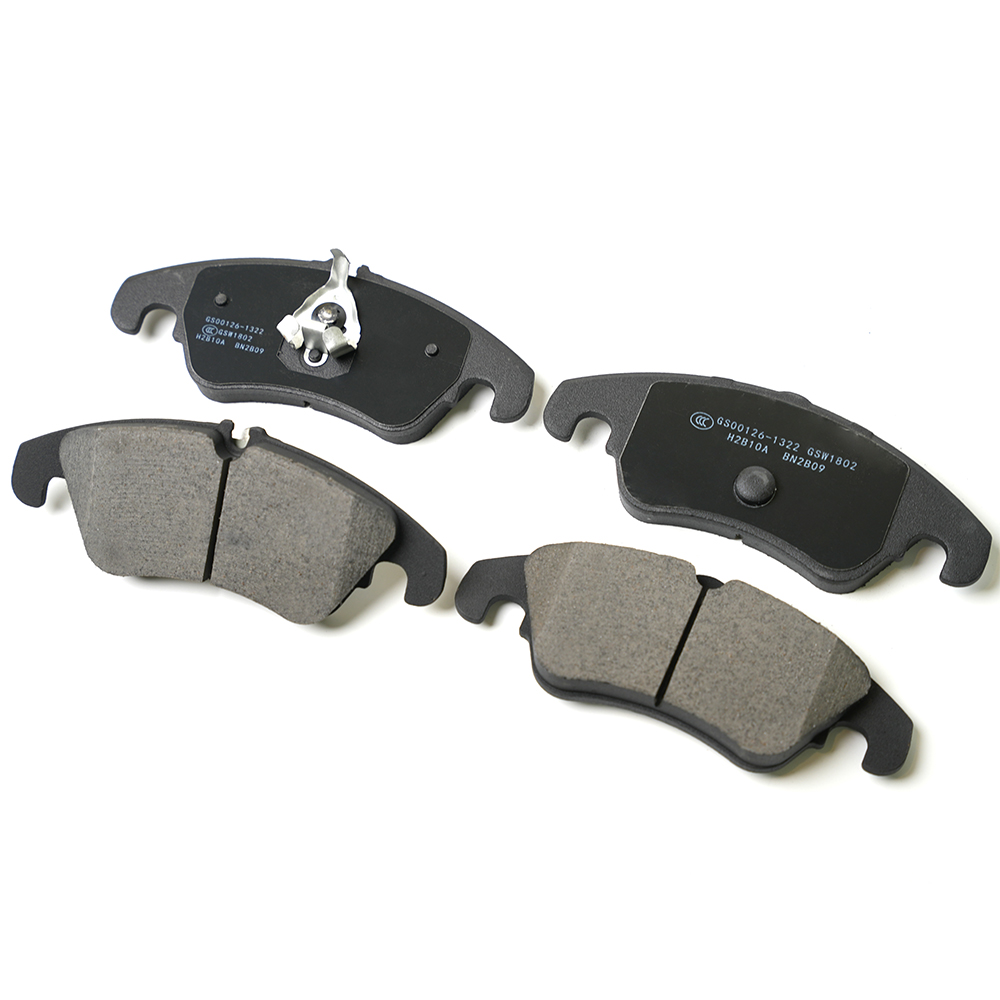When it comes to designing a brake pad for American car models, one of the most technically challenging yet crucial aspects is managing noise, vibration, and harshness—collectively referred to as NVH. Drivers in the U.S. market, especially those using trucks and SUVs, often expect more than just strong stopping power. Comfort and acoustic refinement matter just as much. That’s why brake pad manufacturers have put significant effort into refining materials and design features to control NVH without compromising braking performance.
Noise, in particular, is a key concern for many customers. Squealing or grinding during braking is often mistaken for poor quality, even when the pad’s actual performance is solid. To prevent this, we fine-tune the pad formulation by incorporating damping materials, optimizing the backing plate structure, and applying precision shims. Modern semi-metallic and organic formulations for American vehicles now include carefully selected fibers, fillers, and binders that balance friction stability with sound control.
Vibration is another factor that directly affects driving comfort. A poorly matched brake pad can introduce vibration feedback through the pedal or steering column, especially during low-speed stops or when the rotors are slightly uneven. In our development process, we use advanced NVH testing to analyze how pad stiffness, compressibility, and thermal expansion interact under stress. By doing so, we ensure that each brake pad for American car applications maintains consistent contact with the rotor, minimizing vibration across a range of temperatures and loads.
Harshness is perhaps the most complex of the three. It’s influenced by a combination of friction coefficient stability, rotor compatibility, and even the caliper design used in American models. A well-designed brake pad reduces harshness by avoiding sudden spikes in friction or uneven wear patterns, both of which can create a jarring sensation during braking. That’s why we place great emphasis on wear pattern analysis and pad-rotor pairing during product testing.

Unlike simple aftermarket products, our brake pads for American cars go through rigorous testing that replicates actual U.S. driving conditions—city traffic, highway cruising, and stop-and-go loads in heavier vehicles. This helps us identify and correct NVH issues before they reach the customer. While not every squeak can be eliminated—especially with certain aggressive compounds—we aim for a refined balance that performs consistently without unwanted noise or vibration in real-world use.
One often overlooked aspect is the role of brake pad geometry in NVH control. The use of chamfers, slots, and multi-layer shims isn’t just for appearance—they’re carefully engineered to break up harmonic vibrations and improve heat distribution. For heavier American cars and trucks, these features become even more important, as the braking system has to absorb greater kinetic energy without becoming unstable or noisy.
From a manufacturer’s perspective, NVH control is not just a technical requirement but also a competitive edge. Customers notice the difference when a brake pad feels smooth, quiet, and confident. That’s why our engineering team continues to refine formulations and production standards to meet the evolving expectations of the American automotive market. If you're looking for a brake pad for American car models that delivers comfort along with durability, it's worth investing in products that prioritize NVH performance at the design level.
Our experience working with different vehicle platforms, from compact sedans to full-size pickups, has shown us that not all brake pads are created equal. NVH performance requires deep knowledge of both materials and real-world conditions. If you’re sourcing brake pads that meet high standards and keep your customers satisfied, working with a professional, quality-focused supplier can make all the difference.